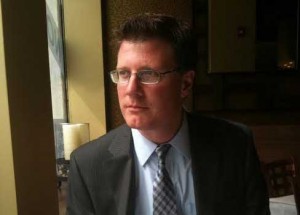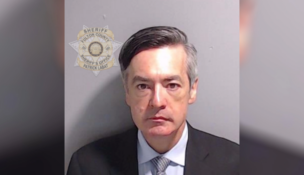CRITIC’S CORNER: Law schools, lawyers, and dead philosophers
By: Michael D. Cicchini//December 14, 2016//
CRITIC’S CORNER: Law schools, lawyers, and dead philosophers
By: Michael D. Cicchini//December 14, 2016//

Many law schools have let their students down over the past decade. To begin with, students have been graduating with staggering debt loads. Even perennial fourth-tier schools often leave their graduates more than $150,000 in the red.
Then, contrary to law schools’ employment data that induced many students to enroll in the first place, job prospects for most grads are dismal, forcing many to hang out their own shingle. But the problem is that law school has taught them very little, if anything, of practical value.
Surprisingly, however, this isn’t the biggest problem. Not only do law schools fail to teach students how to practice law; they don’t even teach them the law. Most new lawyers aren’t aware of the basic substantive or procedural law in their field. It’s the equivalent of medical schools graduating doctors who don’t know how to use a stethoscope and, worse yet, don’t even understand basic human anatomy.
Despite all this, things may have just gotten worse—or at least equally bad on a new front. For many young, liberal, globally minded college and law-school students, the reality of President-Elect Trump has caused significant emotional turmoil. Colleges have dealt with this by using more safe spaces and trigger warnings, holding “cry-ins,” and working hard to suppress upsetting speech on campus. But how are law schools dealing with the campus trauma? They are, after all, professional schools. Surely they wouldn’t coddle students the way colleges do, would they?
Unfortunately, one law school dealt with its Trump-induced turmoil by providing “post-election self-care with food and play.” This was a school-sponsored event that offered “self-care activities such as coloring sheets, play dough [sic], positive card-making, Legos, and bubbles with your fellow law students.”[1]
The problem, of course, is that a law school thought a Play-Doh-centered event was a good idea for soon-to-be-licensed professionals. In mere months, some of these students will experience stress they’ve never known before. Their clients’ money or freedom will be at risk; they will be screamed at by senior lawyers, opposing counsel, or judges; and they will experience things in the courtroom or conference room that are so irrational and unfair it will make their heads spin. Life will be so stressful that the presidential election will seem irrelevant by comparison—but the Play-Doh and coloring books won’t be there to comfort them.
Instead of handing out children’s toys, law schools should teach their students to anticipate and deal with this type of adversity. And just as law schools rely on an ancient Greek philosopher to essentially run their entire curriculum — I am referring, of course, to Socrates and the Socratic Method — the solution is once again found in philosophy: this time, the Roman Stoics.
My favorite Roman Stoic, Seneca, offered very detailed advice that is still useful 2,000 years later. For example, he once cautioned: “Even in an advocate I should be loath to allow such uncontrollable speed in delivery, all in an unruly rush; how could a judge, who is not uncommonly inexperienced and unqualified, be expected to keep up with it?”[2]
In addition to offering practical courtroom tips, Stoicism is a broader philosophy and should be as much a part of law school as Socrates’ Method. The goal of Stoicism is tranquility, a mind free of turmoil. How does it set out to accomplish this? Broadly speaking, “If you really want to escape the things that harass you, what you’re needing is not to be in a different place but to be a different person.”[3]
One Stoic technique for becoming “a different person” is to anticipate and plan for worst-case scenarios. “Rehearse them in your mind: exile, torture, war, shipwreck. … [W]e should be anticipating not merely all that commonly happens but all that is conceivably capable of happening, if we do not want to be overwhelmed and struck numb by rare events as if they were unprecedented ones[.]”[4] Not only does this preventative technique make for a better prepared lawyer, but, from an emotional standpoint, “Whatever you have been expecting for some time comes as less of a shock.”[5]
Law schools would do their students a great service by adopting the Stoic Method alongside the famous Socratic Method. The Stoics’ preventative techniques are far more effective than post-incident Play-Doh and bubbles, and they have a much broader application. Not only is Stoic philosophy useful for dealing with presidential politics, but it is indispensable for dealing with the potentially traumatic events that await the unsuspecting, soon-to-be lawyer.
[1] Greg Piper, UMich Law School Scrubs Post-Trump Play-Doh and Coloring Event from Website, The College Fix (Nov. 11, 2016), at http://www.thecollegefix.com/ post/29922/.
[2] Seneca, Letters from a Stoic, 84 (Penguin Books: 2004) (translated and with introduction by Robin Campbell).
[3] Id. at 186.
[4] Id. at 179 (emphasis added).
[5] Id. at 139.
Legal News
- Milwaukee’s Common Council now has the most African Americans, women and openly LGBTQ members ever
- Office of School Safety Provides Behavioral and Threat Assessment Management Training Ahead of 25th Anniversary of Columbine Shooting
- Wisconsin Supreme Court to hear arguments in Democratic governor’s suit against GOP-led Legislature
- Lawsuit asks Wisconsin Supreme Court to strike down governor’s 400-year veto
- Wisconsin man pleads not guilty to neglect in disappearance of boy
- ACS Selects University of Wisconsin Law School’s Miriam Seifter for 2024 Ruth Bader Ginsburg Scholar Award
- People with disabilities sue in Wisconsin over lack of electronic absentee ballots
- Wisconsin Republicans ignore governor’s call to spend $125M to combat ‘forever chemicals’
- Native American voices are finally factoring into energy projects
- Steven Avery prosecutor Ken Kratz admits ‘mistakes were made’
- Colombian national extradited to Milwaukee faces International narcotics-trafficking conspiracy charge
- MPD: Milwaukee homicides down nearly 40 percent compared to last year
WLJ People
- Power 30 Personal Injury Attorneys – Russell Nicolet
- Power 30 Personal Injury Attorneys – Benjamin Nicolet
- Power 30 Personal Injury Attorneys – Dustin T. Woehl
- Power 30 Personal Injury Attorneys – Katherine Metzger
- Power 30 Personal Injury Attorneys – Joseph Ryan
- Power 30 Personal Injury Attorneys – James M. Ryan
- Power 30 Personal Injury Attorneys – Dana Wachs
- Power 30 Personal Injury Attorneys – Mark L. Thomsen
- Power 30 Personal Injury Attorneys – Matthew Lein
- Power 30 Personal Injury Attorneys – Jeffrey A. Pitman
- Power 30 Personal Injury Attorneys – William Pemberton
- Power 30 Personal Injury Attorneys – Howard S. Sicula











